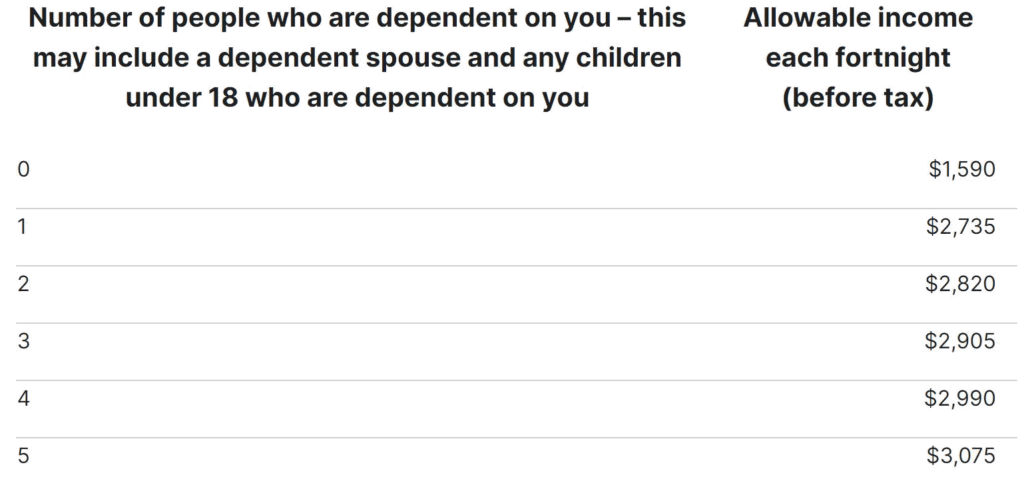Getting a divorce is already difficult and stressful without becoming a long and drawn-out concern. Fortunately, organising a divorce application form has become more straightforward, making this period easier to cope with.
This means the do-it-yourself approach with no solicitor fees has become more common as people seek to reduce costs by avoiding the expense of a divorce lawyer. One of the most common questions regarding the divorce process is: how much does it cost for divorce?
How much is the cost of divorce in Australia?
Divorce can be costly and the total expenses can range up to $10,000 depending on the complexity of your situation. While a DIY approach can help avoid legal fees, there are still divorce fees and the risk of not having the support of a lawyer. This can be challenging for those with financial difficulties. Therefore, it’s important to consider the cost of property settlements and formalising parenting arrangements.
(To know the risks of DIY compared to hiring an expert lawyer, check our blog here.)
However, there are several ways to receive a reduced fee or, in some cases, waive it altogether. One such method is to claim financial hardship.

If you want to make your divorce process easier, we can help!
Download our FREE All In One Divorce Checklist for a more detailed guide on the next steps.
Financial hardship
When applying for a divorce?
It is common for individuals undertaking a divorce application to suffer financially. This relates to anyone struggling to meet their financial obligations. Women, in particular, are at risk of being in a vulnerable position, especially if they have been out of the workforce for a significant period and are relying on their spouse’s income.
A reduced filing fee can significantly help anyone whose circumstances make the divorce application process financially burdensome. So, how do you access a fee reduction?
How to demonstrate financial hardship?
Applicants seeking a reduced fee must demonstrate financial hardship by passing a three-part test assessing their financial position. The test is broken down into the following:
- Income test
- Assets test
- Day-to-day living expenses and liabilities test
Income test
The income test applies to your gross income, which may include the following:
- Employment income – wages, salary, and self-employment income;
- Employer-provided fringe benefits;
- Rental income;
- Reportable superannuation contributions (salary sacrifice);
- Centrelink pensions or benefits and some supplementary payments;
- Department of Veterans Affairs payments;
- Income from financial investments such as bank accounts, managed investments, and shares;
- Revenue from income stream products such as allocated pensions, annuities, and superannuation pensions;
- Foreign income;
- Private trusts and companies;
- Compensation;
- New Enterprise Incentive Scheme;
- Paid Parental Leave;
- Lump sum payments such as redundancy, leave or termination payments.
The table below shows the maximum allowable fortnightly income based on the number of dependents you support.
Assets test
The asset test applies to any liquid assets you own, such as cash, convertible shares, or bonds. Your total liquid assets must not exceed five times the relevant court fees to pass. The current divorce application form fee is $940, and a decree of nullity is $1,335.
Applying the calculation shows that your liquid assets must be less than:
- Divorce application: $4700 ($940 x 5)
- Decree of nullity: $6675 ($1335 x 5)
Day-to-day living expenses and liabilities test
Surplus income is your income net of tax minus all reasonable fortnightly day-to-day expenses and liability repayments. Reasonable expenses include things like groceries, rent or mortgage payments, payments for utilities and costs associated with a vehicle. The court must be satisfied that your surplus fortnightly income falls below a certain threshold.
Your fortnightly surplus income must not exceed the following:
- $470 for a divorce application
- $665 for a decree of nullity

Several fees are associated with the divorce application form, depending on your circumstances. Some may not require the total cost to be paid, while others may be avoided entirely.
Some of the new family court fees may be waived in the following circumstances (as per section 2.04 of the Family Law (Fees) Regulation 2012):
-
The person has been granted legal aid under a legal aid scheme or service:
-
-
Established under a law of the Commonwealth or of a State or Territory; or
-
Approved by the Attorney‑General;
-
-
For the proceeding for which the fee would otherwise be payable;
-
The person is the holder of any of the following cards issued by the Commonwealth:
-
-
A health care card;
-
A pensioner concession card;
-
A Commonwealth Seniors health card;
-
Any other card that certifies the holder’s entitlement to Commonwealth health concessions;
-
-
-
The person is serving a sentence of imprisonment or is otherwise detained in a public institution;
-
The person is younger than 18;
-
The person receives youth allowance or Austudy payments under the Social Security Act 1991 or benefits under the ABSTUDY Scheme.

The following is a list of fees you might expect to pay. Those marked with an asterisk may be exempted according to the criteria above:
Divorce Application-$1060
The divorce application itself is not available for exemption. But, by proving financial hardship or possessing a relevant concession card, it may be reduced to $350.
Decree of Nullity–$1505
You may seek to have your marriage nullified through a decree of nullity if one or both parties were:
- Already married to other people;
- Underage and lacked the required approvals; or
- Were forced into the marriage against their will.
Similar to a divorce application, there is no exemption for this fee. However, it may be reduced to $500 with a finding of financial hardship or a valid concession card.
Application for consent orders-$195*
When you and your spouse reach a mutual agreement about parenting or financial matters, you can apply for a consent order to have the deal formally recognised by the Court.
Initiating application for parenting or financial orders-$410*
When you and your former partner cannot agree on parenting or financial matters, you can apply to the Court to decide. Filing a response to an initiating application attracts the same fee.
You may file an initiating application for parenting AND financial orders simultaneously for a discounted fee of $595.
Interim orders-$140*
When an urgent matter requires immediate action while the Court is making its final orders, you can apply for interim orders to be put into place temporarily.
Setting down fee-$745 (Div 2), $1010 (Div 1)*
If your case goes to trial, a setting down fee is payable for a trial date to be set, and this fee covers the first hearing day. The same hearing fee applies for every hearing day after the first.
Since the Family Court and the Federal Circuit Court were combined into a single entity in 2021, two divisions are now in place, each with its own fee structure. Division 1 continues the responsibilities undertaken by the Family Court of Australia before amalgamation, and Division 2 continues the work of the Federal Circuit Court.
Conciliation conference-$465*
A conciliation conference is a mediation overseen by a court registrar to settle matters relating to parenting and finance. The Court has a limited capacity for conciliation conferences. You may need to pursue private mediation outside the Court if specific criteria are unmet.
Process server-$90
If you are a sole applicant and need to serve divorce papers to your spouse, a process server can deliver them for a fee. As they are private operators, their rates may vary depending on the job required.

Certain government concession cards
Several government concession cards issued by the Department of Human Services make you eligible for an exemption from various family court fees. These include:
- Health care card;
- Pensioner concession card;
- Commonwealth seniors’ health card;
- Any other card issued by the Department of Human Services or the Department of Veterans Affairs certifying your entitlement to Commonwealth health concessions.

If you want to make your divorce process easier, we can help!
Download our FREE All In One Divorce Checklist for a more detailed guide on the next steps.
Avoiding solicitor fees with a DIY approach
With these costs in mind, how can you reduce your liabilities by tackling the process without legal representation? While it’s always recommended to seek legal advice, it’s easier now to complete the procedure by yourself.
To know the risks of DIY compared to hiring an expert lawyer, check our blog here.
Here are some ways you can smooth the process.
Joint application
Family law matters are always easier to navigate if both parties agree. Joint applications have several benefits.
Mutual Agreement. A joint application signifies that both parties mutually agree to the divorce, which can streamline the process. One party doesn’t need to serve divorce papers to the other, reducing complexity and emotional stress.
No court appearances. Joint applications generally don’t require parties to appear at the divorce hearing. The court hearing is necessary for sole applicants with children under 18. One situation in which joint applicants may need to appear is when they were ‘separated under one roof’. In this circumstance, the parties cohabited during their separation. The Court may require you to provide additional evidence to clarify the situation.
Faster Resolution. With both parties cooperating, the divorce process can be quicker. It’s the shortest path to divorce resolution, allowing you to avoid extra costs and move on faster.
No mediation or counselling. Consenting parties don’t need to undergo mediation or counselling. This reduces costs and speeds up the process. One exception is when you’re seeking a divorce for a marriage of less than two years. In this case, the parties must attend marriage counselling.
Shared filing fees. While filing fees can’t be avoided entirely, joint applicants can share fee costs. This eases the burden on both parties.
We can also assist you with the process of joint application for divorce.

- Check this out: What Are the Risks of DIY Vs Hiring Professional Family Lawyers?
Property settlements
There are various ways to settle property matters during divorce:
- Informal financial agreement;
- Binding financial agreement;
- Financial consent order;
- Contested property order.
We can rule out binding financial agreements as they require independent legal advice to be valid. That leaves three options if we want to avoid solicitor fees. Let’s look at how they work.
Informal financial agreement
Informal financial agreements are the cheapest option for settling property matters. However, informal agreements have significant drawbacks and should be approached carefully to ensure effectiveness. Here are some tips:
Understand Your Legal Rights and Entitlements. Begin by understanding your legal rights and entitlements in a divorce settlement. This includes how assets and debts are typically divided, responsibilities for child support, and spousal maintenance.
Full financial disclosure. Both parties should fully disclose their financial situations, including assets, debts, income, and superannuation. This transparency is crucial for a fair agreement. Consider verifying this information with a neutral third party, like a financial advisor.
Draft a Detailed Agreement. Write down all the terms of your agreement in detail. This should include how assets and debts will be divided, spousal or child support arrangements, and other financial matters. Be as clear and specific as possible to avoid misunderstandings or disputes in the future.
Plan for Dispute Resolution. Include a clause in your agreement about how future disputes or changes to the agreement will be handled. Mediation is a common and effective method for resolving disputes without going to Court.
Regular Reviews. Life circumstances change, so consider including provisions for reviewing and updating the agreement as needed. This is particularly important for long-term arrangements like spousal support or child custody.

Financial consent order
Consent orders give you greater certainty over your asset pool. However, you will incur a filing fee. Here are things to consider when applying for a consent order.
Information and Templates. Use resources the Family Court provides, including information packs and template documents. These resources can help you understand the process and what’s required, potentially reducing the need for legal advice.
Double-Check Everything. Errors or omissions can lead to the Court rejecting your consent order, incurring additional costs. Make sure all information is accurate and the agreement is comprehensive.
Online Services. Consider using online services that guide you through creating a draft consent order. These services can be less expensive than hiring a professional lawyer to draft the documents.
Contested property order
If you can’t agree on property matters, you may need to appeal to the Court to resolve the impasse. This will increase costs but may be unavoidable. Here are some tips to approach a contested property order.
Understand Your Rights. Before entering negotiations, understand your legal rights and what you’re entitled to in a separation. This knowledge can make negotiations more straightforward and prevent costly disputes.
Legal Aid. Legal aid services can provide free or low-cost assistance with your property order if you’re eligible.
Prepare Documentation. Gather all necessary financial documentation, including assets, debts, income, and expenses. This preparation can streamline the process and eliminate the need for a lawyer.
Do you need legal assistance with your divorce? Our divorce lawyers are here to help.
Parenting arrangements
As with property settlements, parenting arrangements can be organised formally or informally. When there are children involved, their best interests are paramount. Here are your options and how to pursue them.
Informal parenting agreement
Discuss Expectations. Discuss each parent’s expectations, concerns, and priorities regarding the children’s upbringing. This includes education, health care, and living arrangements.
Cover All Bases. Create a comprehensive plan that covers daily routines, holidays, special occasions, and how to handle unexpected situations or emergencies.
Write It Down. Document your agreement in writing, including schedules, decision-making processes, and financial arrangements regarding the children. This isn’t legally binding but can help clarify understanding and expectations.
Plan for Disagreements. Include a plan for resolving disagreements, whether through mediation, counselling, or another agreed-upon method, to avoid conflicts escalating.

Parenting order
Making a formal parenting order work while avoiding solicitor fees in Australia requires careful planning and cooperation between parents. It would be best if you were willing to navigate some legal processes independently. Here’s how you can approach this.
Family Dispute Resolution (FDR). Before applying for a parenting order, you must attempt family dispute resolution unless your case involves urgency or family violence. FDR is a mediation process that helps separated parents agree to parenting arrangements. Successfully reaching an agreement here can avoid the need for court intervention.
Parenting Plan. If you reach an agreement through FDR or negotiations between yourselves, you can draft a parenting plan. While a parenting plan is not legally enforceable, it can be submitted to the Court to be made into legally binding consent orders.
Use Court Resources. The Family Court of Australia provides resources and a DIY kit for preparing consent orders. This kit includes a comprehensive guide and templates for drafting your orders.
Be Detailed and Clear. When drafting your consent orders, be as detailed and transparent as possible about all parenting arrangements, including living arrangements, decision-making responsibilities, communication guidelines, and financial support.
Application Process. Once you have drafted your consent orders, submit them to the Court. There is a filing fee, but there’s no need to incur a divorce lawyer’s cost.
In conclusion
It is perfectly understandable if you are going through a divorce and feel comfortable approaching the whole process yourself. However, a family lawyer from a respected law firm like Shanahan Family Law saves you time and money, ensuring documentation is completed correctly and submitted on time. When submitting documents to the courts, they must be written and filed according to the Federal Circuit and Family Court of Australia (Family Law) Rules 2021.
Everyone’s circumstances are different. Legal advice relevant to your situation from qualified family lawyers can be the difference between losing more than your share of either child custody or the split of shared financials. Perhaps you’re negotiating a property settlement, parenting arrangements, or spousal maintenance with your former partner.
We can make sure you are treated fairly. When you’re filing a sole or joint application for divorce and want to understand your options for reducing the application fee, we’re behind you. Our fixed-fee services can give you cost-effective legal assistance.
Even without appearing at a divorce hearing, we can help you be prepared for all possible outcomes. At the time of writing this article, our fees are as follows:
- Preparing joint application: $660
- Preparing sole application: $1100
- Preparing sole application where the other party’s location is unknown: $1980
For further information on how we can assist you in getting a divorce order or any family law matters, contact our divorce lawyers today.
If you need help with family law matters, contact us for a free discovery call.
Related Articles
- 9 Important Steps To Follow When Filing For Divorce Online
- How to Get a Divorce in Australia Today? (11 Simple and Stress-Free Steps)
- Client Success Stories: How Shanahan Family Law Produces Positive Results In Divorce Cases?
- How to File a Divorce in Australia If Married Overseas in 2024? (Updated Guide)


